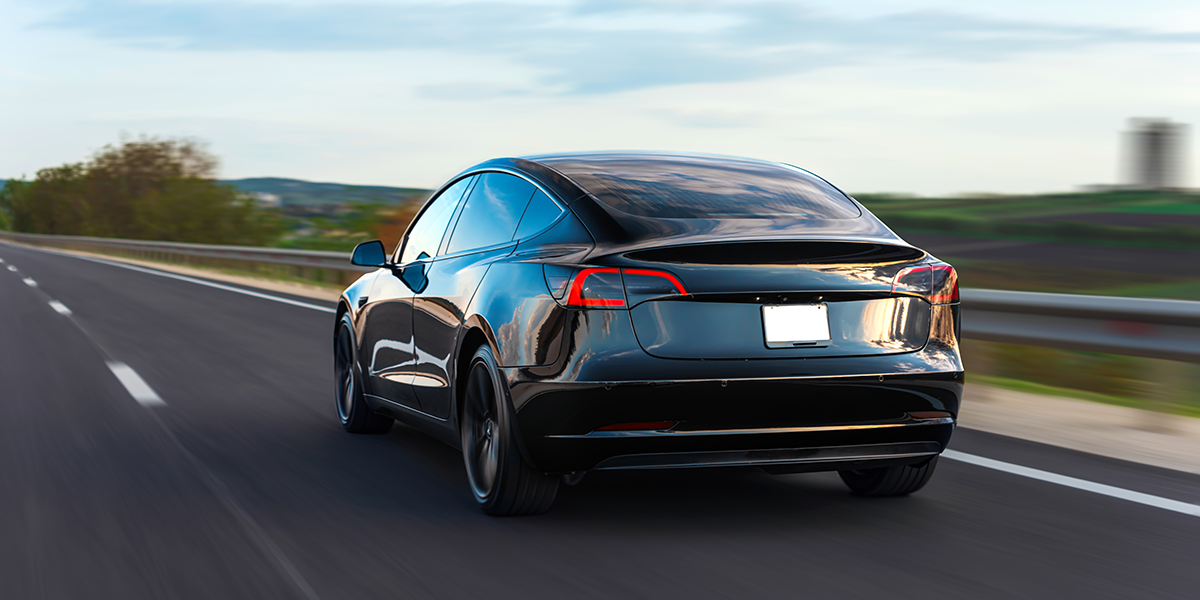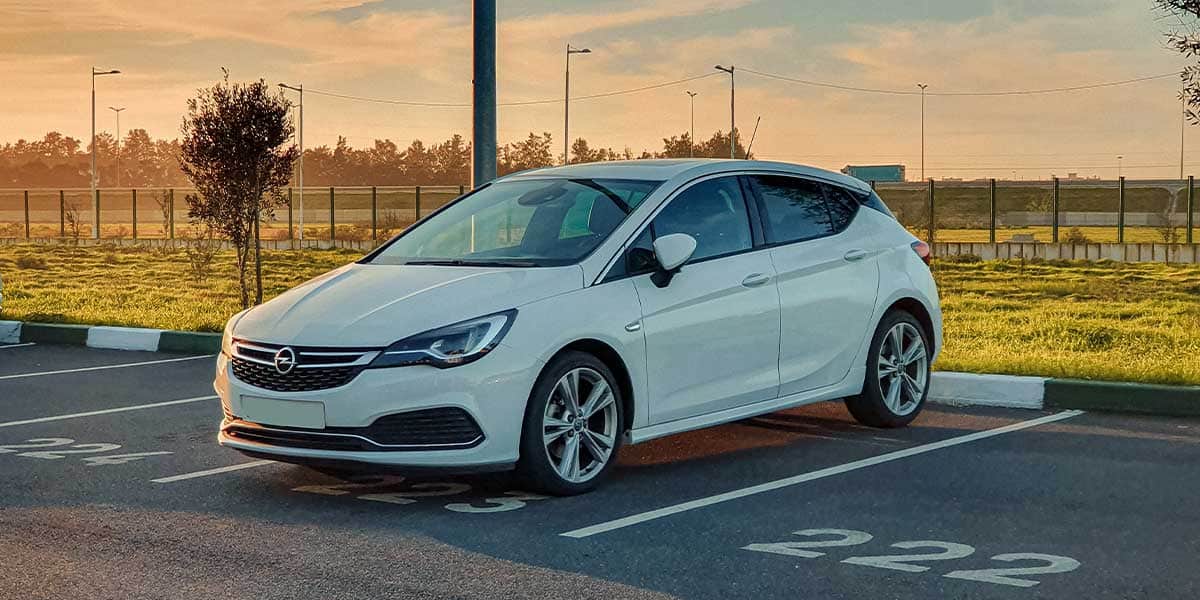Buying a new car is exciting. Whether you’re looking for a family-friendly drive, or a two-seater sports car, finding a new set of wheels can be fun.
However, a car is also likely to be expensive. In fact, after a house, a car is probably the second highest expense you’ll ever face. Car finance gives you the option of breaking down that expense into manageable chunks.
There are plenty of different types of car finance agreements available. With our wide range of lenders, you are sure to find one that accommodates your needs and circumstances – even if you have a poor credit score.
This article will break down what a balloon payment is, as well as what happens and your possible options if you can’t afford to pay it.
What is a balloon payment?
In car finance terms, a balloon payment is a one-off lump sum plus an option to purchase and possible admin fees, that you owe at the end of your agreement if you wish to own the car.
In order to understand what happens if you can’t pay a balloon payment, it’s worth outlining what these are. You can also check out our guides on how balloon payments work and balloon payments explained for more details.
Not all car finance agreements have a balloon payment. For both Personal Contract Purchase (PCP) and lease agreements, you’ll face a balloon payment at the agreement’s end. Because you’re making this final balloon payment, you’ll benefit from lower monthly repayments during the term of your agreement. By making this payment at the end of a PCP agreement, you’ll own the car outright. On the other hand, it simply makes monthly payments lower for a lease agreement with no option to own the car.
A balloon payment is optional with PCP, but not optional with a lease agreement. If you don’t want to own the car at the end of your PCP agreement, you can hand it back or choose another finance agreement with the same lender as long as the vehicle is in good condition, in line with the contract terms and within the agreed mileage.
What happens if you can’t pay your balloon payment?
The finish line of your car finance agreement is in sight and so far, it’s been smooth sailing – you’ve managed to stay on top of your monthly payments and the car has been yours to enjoy. But now, the balloon payment looms on the horizon and suddenly there’s a financial curveball in your path you might not feel ready to tackle.
What happens if the funds aren’t there? Does your lender give you a pass, or are there consequences? Here’s a breakdown of what to expect if your finances feel a bit tight and you can’t make your balloon payment.
Late fees or penalties
In some instances, you may face late fees or penalties by the lender. These are additional charges on top of what you owe for the balloon payment.
Default and repossession
If you don’t confirm to your lender what end-of-deal option you want, they may automatically try to take the payment. If you don’t have the available money, you may therefore end up defaulting on the finance agreement.
There are any number of steps that a lender can take if you default on a loan. Your account may be sent to a debt collection agency to try and recover outstanding payments. This will have consequences for your credit score and future loan viability.
Alternatively, the lender may try to initiate repossession of your vehicle. This essentially means they reclaim the vehicle as collateral for the debt. This also has consequences for your credit score.
Legal action
In more extreme instances, you may face legal action, which could lead to a court judgment against you. Depending on the court order, the lender may be allowed to seize collateral to make up for the debt. Alternatively, you may be subject to wage garnishment, where an employer is required to deduct money from your salary until your debt is paid off.
Impact on credit score
In any of the above instances, your credit score will suffer. Defaulting on your car finance agreement and experiencing repossession will negatively impact your credit rating. A lower score then reduces your future loan viability, making it harder to obtain agreements. You’ll also likely face higher interest rates and less appealing terms for any future loans.
Understanding your balloon payment agreement in detail
Balloon car loan payments can seem complicated at first, but once you get your head around a few key concepts, they’re surprisingly straightforward.
How are they calculated?
At the centre of every balloon payment is something called the Guaranteed Future Value (GFV). This figure is essentially what your car is expected to be worth at the end of your finance agreement. Variables like brand, model, mileage and depreciation rate can all influence GFV.
How do you get the best deal?
Use these insider hacks to bring down the cost of your balloon payment and car loan:
- Haggle the GFV – Some lenders are willing to negotiate the GFV. Keep in mind that a higher GFV lowers your monthly payments but increases the final balloon payment. On the flipside, a lower GFV increases your monthly payments but brings down your final balloon payment.
- Compare rates – Even a fractional difference in interest rates can make a big difference on your monthly payments. This is where brokers like My Car Credit can have a real impact.
- Be mileage savvy – Overestimating your mileage could mean paying more than you need to. The lesson? Aim for accuracy.
What influences balloon payments?
A balloon car loan payment is all about the numbers. If your car holds its value well, the balloon payment could be smaller than you think. Conversely, if your ride depreciates faster than last season’s tech gadget, prepare for a larger lump sum.
Other factors that can influence your balloon payment agreement include:
- Agreement duration – The duration of your agreement can affect both your monthly payments and the size of your balloon payment at the end of your contract.
- Interest rates – The higher they climb, the bigger your overall repayment.
Why pick HP over PCP?
Both Hire purchase (HP) and personal contract purchase (PCP) agreements can have balloon payments. The difference? They cater to different goals.
- HP is for those who want to keep the car at the end and wave goodbye to mileage restrictions.
- PCP is ideal if you like the idea of options – whether that’s keeping, returning or trading in the car.
What will happen if I miss a balloon payment?
Missing a balloon payment on your car loan can feel like hitting a financial pothole but knowing what to expect can help you overcome the situation.
Here’s a brief timeline of what might happen:
Initial penalties – The lender will likely contact you to discuss the situation if you miss a payment. Expect late fees or added interest charges at this early stage.
Repossession risk – The lender could move to repossess the vehicle should the payment remain unsettled. Depending on your agreement, this process could be immediate or involve a period of negotiation.
Legal action – As a last resort, lenders may pursue legal action to recover the balloon car loan payment. This could result in a court judgment and impact your credit rating.
How lenders handle missed payments
Lenders aren’t out to get you. Most prefer to work with you rather than escalate the situation. Many will explore options like payment extensions, refinancing or adjusted repayment terms to help you get back on track. The key is proactive communication. Contact your lender as soon as you foresee issues to avoid further complications.
Preparing before you commit
The best way to handle a balloon payment is to plan ahead.
Before signing an agreement, calculate whether the final payment fits your budget. Create a savings buffer during the contract term to cover the cost when it’s due. If you anticipate difficulties, explore alternatives like lower monthly payments or even a finance plan that doesn’t involve a balloon payment.
By staying informed and prepared, you can keep your finances on track and avoid unnecessary stress.
What to do if you can’t afford your balloon payment
Reaching the end of your car finance agreement (aka making your final balloon payment) should feel like a victory lap, not a stress-inducing roadblock. Don’t panic just yet if you can’t afford your balloon payment. You’re not the first person to face this, and you won’t be the last. The good news? You’ve got options.
Whether it’s breaking the payment into smaller chunks, negotiating with your lender or exploring alternative routes, there’s no need to let the balloon payment deflate your dreams of car ownership. Here’s a closer look at what to do if you can’t afford your balloon payment.
Negotiate with the lender
If you think you can’t afford your balloon payment, contact your lender sooner rather than later. You may be able to renegotiate the terms of the loan, benefiting from an extension or refinancing the balloon payment.
Hand back the vehicle
With PCP car finance, you don’t have to make the final balloon payment. You can hand the vehicle back at the end of the agreement as long as the vehicle is in good condition, in line with the contract terms and within the agreed mileage.
However, this isn’t suitable for those who need their car on a daily basis. Plus, you’ll have to shop around for a new finance deal for your next set of wheels. By making the balloon payment, you’ll own the car outright, and can use it as you please.
Sell or trade the vehicle in
Depending on your circumstances and the agreement, you may be able to either trade in or sell your vehicle if you can’t afford the balloon.
Remember that you’ll only be able to do so if its market value is enough to cover the outstanding balance on your loan.
Refinance your balloon payment
My Car Credit offers balloon payment finance. This works like any other finance agreement. You’ll break down the lump sum of the balloon into manageable monthly repayments.
We can help individuals with all credit profiles, using our large panel of lenders to find an agreement that’s right for you.
How we can assist with balloon payment refinancing:
- Personalised assessment – We start by evaluating your financial situation, credit profile and vehicle details. No blanket approach here. We treat each customer on a case-by-case basis which allows us to tailor a refinancing plan that fits your needs.
- Extensive lender network – Leveraging our broad panel of lenders, we seek competitive rates and terms suitable for various credit backgrounds. What does this mean for you? You’ll receive an agreement that fits your circumstances, at the best possible rates.
- Simplified application process – The last thing you want when you can’t afford a balloon payment is more stress. Our user-friendly online application streamlines the refinancing process and gives you quick decisions to help you plan effectively.
- Transparent communication – No jargon here. We make sure all our explanations of all terms and conditions are clear as day, so you fully understand your new finance agreement without hidden surprises.
- Ongoing support – Our team is available to address any questions or concerns throughout the refinancing process.
Can you negotiate a balloon payment?
Balloon payments are written into HP and PCP contracts, but they’re not always set in stone. Under certain circumstances there might be room for negotiation with your balloon payment and car loan.
Here’s what you need to know:
When can you negotiate?
- At the start of the agreement – The best time to negotiate your balloon payment is before you sign your contract. Discuss the GFV with your lender and if the value seems high relative to the car’s depreciation rate or mileage limits, challenge it.
- During the contract – If circumstances change (for example, maybe you’re clocking lower mileage than expected), you may have grounds to revisit the GFV before the agreement ends. This isn’t guaranteed, but some lenders are open to adjustments.
- Refinancing – Is your balloon car loan payment approaching but seems unmanageable? Consider refinancing options. This involves taking out a new loan to cover the balloon payment and spreading the cost into more manageable monthly instalments. Yes, refinancing extends your financial commitment with the lender, but it can provide much-needed breathing room when cash flow is tight.
Preparing for a balloon payment in advance
We get it, a balloon payment can feel like a distant obligation when you first sign a finance agreement. But your future self will thank you for proactive planning when your contract winds up. By setting good habits and keeping the bigger picture in mind, you can avoid last-minute financial stress and feel more confident about managing that final lump sum.
Adopt smart saving habits
Start by factoring your balloon payment into your long-term financial planning. Break the total amount into monthly savings goals throughout your contract term. Like your regular finance payments, treat these savings as non-negotiable. Opening a separate account for this purpose can help you avoid the temptation to dip into these funds.
Monitor your car’s value
It’s worth keeping an eye on the market value of your car as you approach the end of your agreement. If the car’s value exceeds the balloon payment, selling or trading it in could cover the cost entirely.
Set strong agreement terms
Knowledge is power. Make sure you fully understand the terms of your agreement before signing. Don’t be shy to negotiate reasonable mileage limits and a fair GFV for your balloon car loan payment.
Preparation is the key to stress-free car ownership. By saving consistently, tracking your car’s worth and securing a fair agreement, you’ll be ready to handle your balloon payment with ease.
Discuss balloon payment refinancing with My Car Credit
If you can’t pay your balloon payment, you still have plenty of options.
Balloon payment refinancing is a simple way My Car Credit helps drivers with a wide range of credit profiles. Contact our team or use our online calculator to get an instant, no-obligation quote for your expected monthly payments, rate of interest, and total payable amount.
Alternatively, you can find out more in our complete guide to balloon payments.
Rates from 9.9% APR. Representative APR 10.9%
Evolution Funding Ltd T/A My Car Credit
Require more help?
Got a question you can’t find the answer to, or need some advice and guidance around taking out car finance? Our Car Credit Specialists are friendly, experienced, and here to help so get in touch today!














